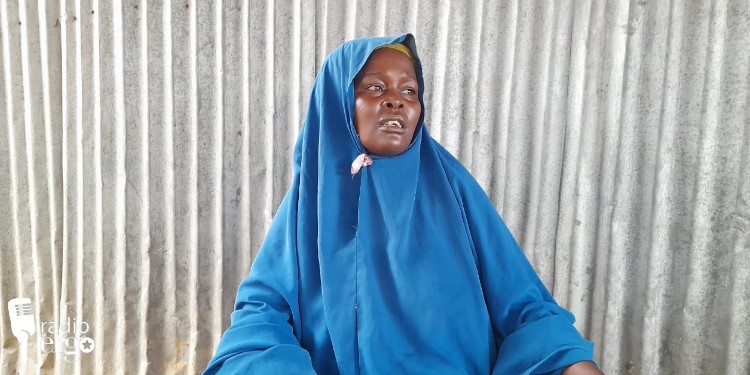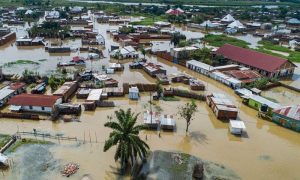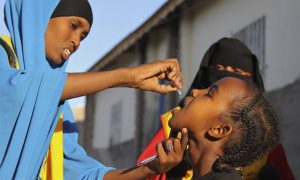
Mogadishu – Hundreds of families whose farms and livelihoods were destroyed in the recent river floods in the southern regional states of Hirshabelle and South West have been fleeing to internal displacement camps in the Somali capital Mogadishu.
Leyla Ulusow Hassan fled Aaytiro village in Afgoye along with 65 families from the village. They are now living in Said IDP camp in Mogadishu’s Deynile district.
Leyla and her four children are living in a flimsy hut in the camp, with little food or water. She said they get one meal a day from their neighbours.
“We depend on those people for food, there is nothing else. There is nothing else we can get. Before we were displaced we had our farms to live off. There is nothing from the farms that survived,” she lamented.
Leyla’s husband stayed behind in their village to watch over their flooded property and their seven cows. They had maize, sorghum, sesame and pawpaw growing on their four hectares of farmland when the floods struck. However, nothing remained for them to harvest.
“The water washed away our farms and house, and we decided to move to Mogadishu. We were carrying nothing with us and we just put our faith in God when we arrived here,” she said.
Many farmers from southern Somalia have been counting losses on their farms. Yusuf Abdulle, a father of seven, reached Saaqo camp in Deynile towards the end of November after abandoning their farm in Damalay village in Middle Shabelle.
It is the first time they have ever joined an IDP camp. He has put up a makeshift shack for his children while he is sleeping outside, trying to come to terms with their new situation.
Yusuf said he doesn’t know where to find jobs as this is the first time he has been to Mogadishu in his life. He and his family are relying on meagre food handouts in the camp.
“We have to depend on other families here because we have nothing. I have never been displaced and I have lived all my life in that area [in Middle Shabelle]. The flood water hit us at night, it washed away everything, I don’t even know where my clothes are,” he said.
Yusuf also owned a small shop in his village valued at $1,500. All the contents of the shop were destroyed in the floods.
Mohamed Gure Nur, head of Cawiye centre that groups almost 20 camps in Deynile, said 500 new families had joined the existing 400 families in these camps during the first two weeks of the river Shabelle floods. The camps were now very overcrowded.
He said they had tried to raise awareness and rally assistance for these vulnerable families but had only received small amounts of food that they were able to distribute to offer one daily meal for the families.
“There were many new people joining the camps, they came in groups of 20 or 30 families after the floods started in Middle and Lower Shabelle. They told us they were displaced by floods that hit them overnight. Now they’re getting just one meal a day and it’s not enough,” he said.
Similar influxes of farming families from flooded area are reported in camps in Kahda and Garasbaley districts of Mogadishu in December.
_____________________________________________________________________________________Xafiiska Wararka Qaranimo Online | Mogadishu, Somalia
_____________________________________________________________________________________Advertisement
_____________________________________________________________________________________







